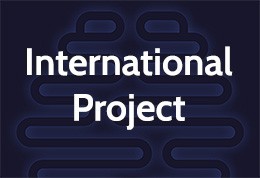- Zuzana Polačková, Mgr., MA, PhD
- Lucia Mýtna Kureková, Mgr., MA, PhD
Michal Polák, BSc,MSc.PhD
Ivana Studená, Ing.PhD.
- 15.3.2025 – 31.7.2026
The project, implemented in partnership with UNICEF under the European Commission’s Technical Support Instrument (TSI), focuses on strengthening the capacities of local governments—specifically the cities of Bratislava and Nitra—in transitioning from emergency management to long-term, systemic integration of foreigners, with particular emphasis on children. The objective is to create coherent and sustainable frameworks for delivering inclusive and high-quality services at the local level. The project involves a comprehensive analysis of legal, policy, and institutional frameworks, as well as multi-level governance mechanisms. It also assesses cooperation between municipalities, non-governmental organizations, and international actors. Particular attention is given to identifying barriers and opportunities for financing inclusive measures through EU and other funding sources. The main output will be an analytical report containing recommendations for improving vertical and horizontal coordination, proposals for policy and procedural adjustments at the local level, and the development of standard operating procedures for emergency management and long-term inclusion. The project will also support capacity building for municipal staff, service providers, and key stakeholders in the area of data collection and utilization for planning and implementing integration policies.
1. Report on regulatory frameworks and partnerships, including a proposal for key areas of intervention aimed at strengthening the coordination and effectiveness of local governments in delivering inclusive services for migrants and refugees, with a particular focus on children and their caregivers.
2. Policy recommendations at the national level, aimed at adjusting the legislative, institutional, and financial frameworks to improve the coordination and effectiveness of local government responses.
3. Mapping of available funding opportunities from the EU and other sources.
4. Development or revision of standard operating procedures (SOPs) for municipalities in times of crisis.
5. Capacity building for local governments.

